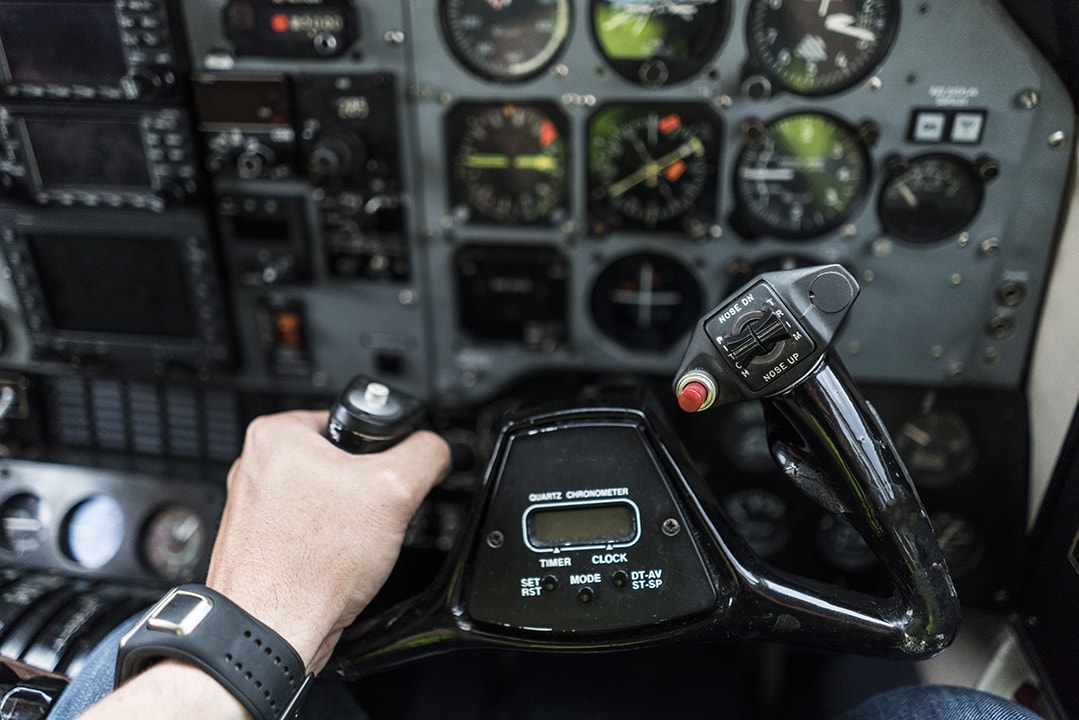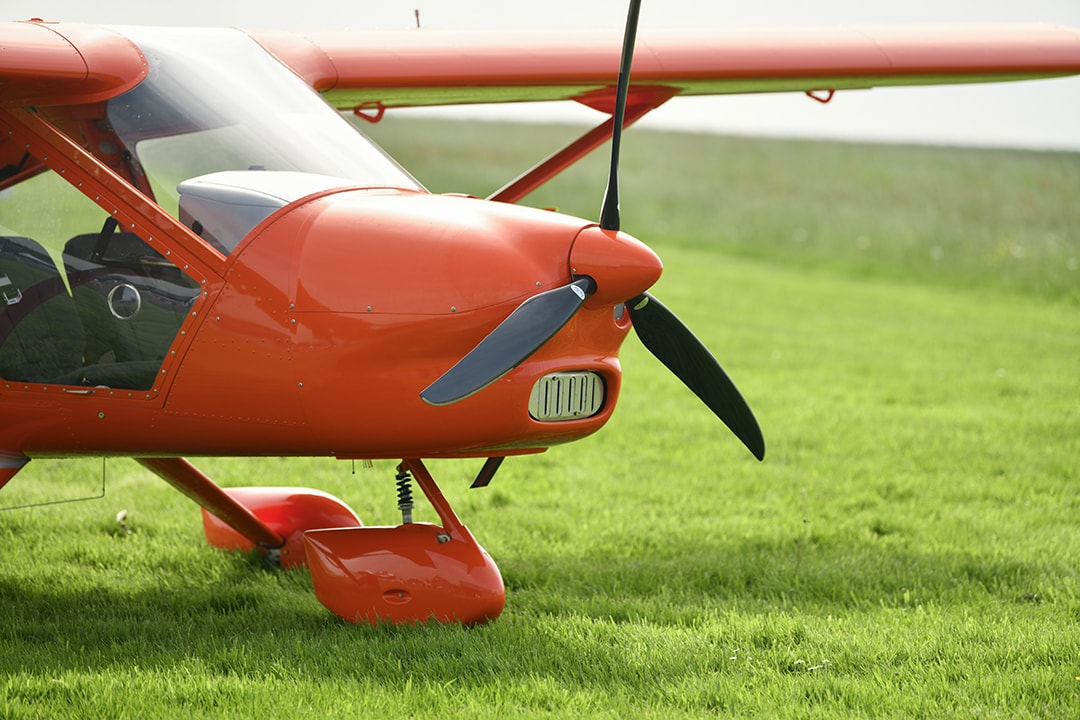Mastering the Sport Pilot Written Test: Essential Tips and Strategies
Oct 10, 2025
Sport Pilot Certification
The sport pilot certificate offers an accessible and affordable pathway for aviation enthusiasts who want to fly for fun and recreation without the extensive requirements of a private pilot license.
This certificate requires fewer flight training hours, making it a popular choice for those looking to get into the air more quickly and with less expense.
To qualify, applicants must be able to read, write, and understand English, be at least 17 years old, and hold a valid U.S. driver’s license. Unlike private pilots, sport pilots are not required to hold an FAA medical certificate, provided they meet certain health criteria and hold a valid driver’s license, which simplifies the medical qualification process.
This makes sport pilot certification an attractive option for many aspiring pilots who may have difficulty obtaining a traditional medical certificate.
Sport pilots are authorized to carry passengers and operate in certain types of controlled airspace, but they face specific limitations designed to maintain safety. For example, sport pilots cannot fly at night and must operate only light sport aircraft that meet strict weight, speed, and configuration limits.
These aircraft typically have a maximum gross weight of 1,320 pounds (or 1,430 pounds for seaplanes) and are limited to a maximum speed of 120 knots in level flight.
To obtain the sport pilot certificate, candidates must successfully pass the FAA knowledge test, also known as the sport pilot written test, which covers essential topics such as FAA regulations, airspace, weather, and emergency procedures.
This combination of streamlined training, reasonable restrictions, and affordability makes the sport pilot certificate a practical and popular choice for recreational pilots in 2025 and beyond.
Choosing the Right Flight Instructor

Selecting the right flight instructor is a crucial step in your journey to becoming a sport pilot. Depending on your personal learning style and preferences, you may opt for formal flight schools or independent flight instructors.
Formal schools often provide structured programs with a set curriculum, while independent instructors may offer more personalized, flexible training tailored to your needs.
Establishing a healthy and trusting relationship with your flight instructor is essential, as this partnership forms the foundation of your pilot training and preparation for the sport pilot written test.
A supportive instructor not only guides you through flight training but also helps clarify complex topics, making your learning experience more effective and enjoyable.
When choosing a Sport Pilot Instructor for your sport pilot training, consider factors such as their FAA certification, experience with sport pilot students, and teaching style.
It’s important that your instructor holds current FAA credentials and has a proven track record of successfully preparing students for the FAA knowledge test and practical flight exams.
Local EAA chapters can be invaluable resources in helping you find qualified instructors or flight schools nearby.
They often provide recommendations and insights based on firsthand experience, ensuring you connect with instructors who are knowledgeable, patient, and committed to helping you achieve your sport pilot certificate.
Taking the time to select the right instructor will greatly enhance your training experience and increase your chances of passing the FAA written exam on your first attempt.
Understanding the FAA Knowledge Test

The FAA knowledge test is a crucial step in obtaining your sport pilot certificate, designed to evaluate your understanding of essential topics such as airports, airspace classifications, and FAA regulations specific to sport pilots.
This test consists of multiple-choice questions that cover a broad range of subjects including aircraft systems, weather patterns, navigation, and emergency procedures.
To pass, you must achieve a minimum score of 70%, demonstrating a solid grasp of the material critical for safe and legal operation of light sport aircraft. The test is administered by PSI Services at authorized testing centers across the United States, and you can conveniently schedule your exam online.
When arriving for the test, you must present valid government-issued photo identification along with a logbook endorsement or written statement from a certified flight instructor or course provider, confirming you are prepared to take the exam.
Preparing for the FAA knowledge test involves a combination of ground school instruction, home study courses, or enrollment in an FAA-approved pilot school.
Many applicants find that a structured pilot training course, either in-person or online, provides a comprehensive approach to learning the material, with experienced instructors offering guidance and support. These courses often culminate in an endorsement certifying satisfactory completion of the ground school portion, which is required before taking the actual test.
Utilizing a variety of study materials, including FAA-approved textbooks, practice tests, and flashcards, can greatly enhance your readiness. It’s important to start studying well in advance to absorb new information effectively and to avoid last-minute cramming.
By following these preparation steps and meeting all documentation requirements, you’ll be well-positioned to pass the sport pilot written test and move forward in your aviation journey.
Test Prep and Study Materials
Preparing for the sport pilot written test involves using a variety of study materials designed to help you grasp the essential concepts and pass the exam with confidence.
One highly recommended resource is the Gleim Sport Pilot FAA Knowledge Test Prep book, which provides comprehensive coverage of the test topics along with review questions that closely mirror those found on the actual exam.
This book is regularly updated to reflect the latest FAA regulations and standards for 2025, ensuring that your study efforts are aligned with current requirements. In addition to printed materials, many students benefit from online resources such as interactive practice tests, video tutorials, and detailed study guides.
These tools allow you to test your knowledge, identify weak areas, and reinforce your understanding of critical subjects like aeromedical factors, aviation weather, and sectional charts, all of which are key components of the sport pilot written test.
Combining these resources with consistent study habits significantly improves your chances of passing on your first attempt.
Another effective strategy for preparing for the FAA knowledge test is to engage with a community of fellow learners. Joining a study group or partnering with a study buddy can help keep you motivated, accountable, and focused throughout your pilot training journey.
Collaborative learning encourages discussion and clarification of complex topics, making the study process more interactive and less isolating.
Additionally, using a blend of ground school instruction and home study courses offers a balanced approach to mastering the material. Ground schools, often provided by FAA-approved pilot schools or experienced flight instructors, deliver structured lessons and opportunities for real-time questions, while home study courses allow you to learn at your own pace.
Satisfactorily completed coursework from these programs often includes a written statement or logbook endorsement from your instructor certifying your readiness to take the sport pilot written test.
By utilizing diverse study materials and leveraging both independent and guided learning methods, you ensure a thorough and well-rounded preparation for the FAA sport pilot written test in 2025.
Ground School and Classroom Instruction

Attending a ground school or classroom instruction course is a vital step in preparing for the sport pilot written test in 2025. These courses are designed to provide you with comprehensive knowledge of essential topics such as aircraft systems, aviation weather, FAA regulations, and aeromedical factors, all tailored specifically to sport pilot requirements.
Learning from an experienced flight instructor or FAA-approved course provider ensures that you receive accurate, up-to-date information aligned with the latest FAA standards.
Ground school not only covers the theoretical aspects but also helps you understand practical applications, such as emergency procedures and navigation, which are crucial for safe flight operations.
Participating in a classroom environment allows you to ask questions, engage in discussions, and clarify any doubts, making the learning process more interactive and effective.
When selecting a ground school or classroom instruction course, it is important to choose one that is FAA-certified and has a proven track record of successfully preparing students for the FAA knowledge test.
The course provider should be well-versed in sport pilot training and knowledgeable about the specific content of the sport pilot written test.
Many FAA-approved pilot schools and aeronautical enterprises providing pilot training offer these courses in both in-person and online formats, giving you flexibility to study at your own pace or in a structured setting.
Upon satisfactory completion of the ground school portion, you will typically receive a written statement or logbook endorsement from your instructor certifying your readiness to take the actual test.
In many cases, this endorsement is issued by a school certifying authority recognized by the FAA, ensuring that your training meets all necessary requirements for the sport pilot knowledge test.
This endorsement is often required to schedule your FAA written exam and demonstrates that you have met the necessary training requirements. Investing time in a quality ground school course is a helpful advantage that significantly increases your chances of passing the sport pilot written test on your first attempt.
Knowledge Test Content
The sport pilot written test covers a comprehensive range of topics essential for safe and legal operation of light sport aircraft. You will be tested on fundamental areas such as airports, airspace classifications, and FAA regulations tailored specifically to sport pilots.
Other critical subjects include aeromedical factors, aviation weather, sectional charts, aircraft systems, navigation, and emergency procedures.
It is important to focus on sport pilot-specific knowledge, including understanding the limitations and operational rules related to light sport aircraft and controlled airspace.
Thorough familiarity with these topics ensures you are well-prepared to meet the FAA’s standards and pass the sport pilot written test confidently.
To prepare effectively, use a combination of ground school instruction and home study materials, which provide structured lessons and flexible learning options.
Many FAA-approved pilot schools and aeronautical enterprises offering pilot training provide comprehensive courses that culminate in a written statement or logbook endorsement certifying your readiness to take the FAA knowledge test.
Supplement your study with practice tests, flashcards, and up-to-date study guides aligned with 2025 FAA regulations to reinforce your understanding. Focusing on areas where you need improvement and ensuring satisfactory completion of such a course will increase your chances of passing the sport pilot written test on your first attempt and advancing smoothly in your pilot training journey.
After the Test

Once you have completed the sport pilot written test, it’s important to carefully review your results. Take the time to identify any areas where you may have struggled or answered incorrectly. This review process is crucial because it helps you understand which topics need more attention and study.
Whether it’s airspace classifications, emergency procedures, or FAA regulations, focusing on these weaker areas will strengthen your overall knowledge and prepare you better for the next stages of your pilot training.
Remember, the sport pilot written test is designed to ensure you have a comprehensive understanding of the essential concepts needed for safe and legal operation of light sport aircraft.
If you don’t pass the test on your first attempt, don’t be discouraged. Many aspiring pilots need more than one try to achieve a passing score, and this is a normal part of the learning process.
Use the feedback from your test results as a valuable tool to guide your future study sessions.
Consider revisiting your ground school materials, practicing with FAA-approved study guides, or seeking additional instruction from your flight instructor or an FAA-approved pilot school. Staying motivated and maintaining a positive mindset is key to your success.
Use this experience as an opportunity to deepen your understanding and improve your skills, ensuring you’re fully prepared to pass the sport pilot written test and move confidently toward obtaining your sport pilot certificate in 2025.
After successfully passing the written exam, the next critical step is to prepare thoroughly for the Sport Pilot Practical Test, which evaluates your real-world flying skills and decision-making abilities.
